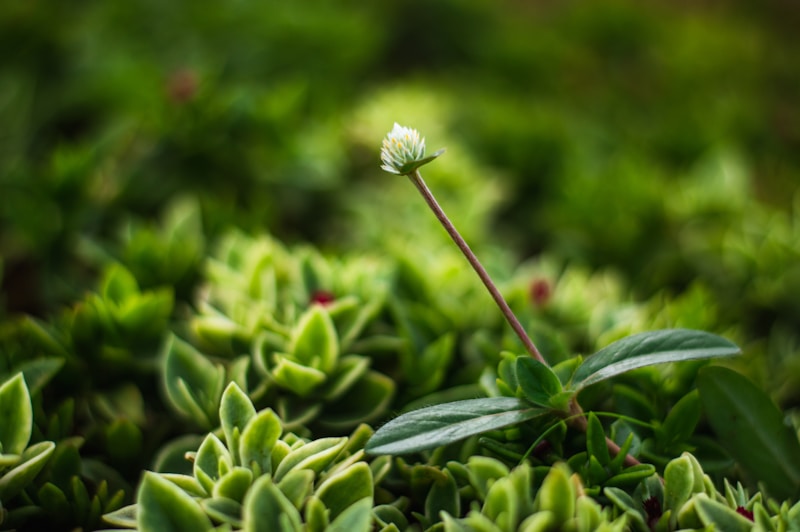Sustainable Flower Sourcing: A Comprehensive Guide to Eco-Friendly Floriculture
Understanding Sustainable Flower Sourcing
In recent years, sustainable flower sourcing has gained immense popularity. As consumers become increasingly aware of environmental issues, the demand for eco-friendly products skyrockets. This article explores the significance of sustainable flower sourcing, its benefits, best practices, and how it impacts global flora trade.
What is Sustainable Flower Sourcing?
Sustainable flower sourcing refers to the practice of obtaining flowers in a way that is ecologically responsible, socially equitable, and economically viable. The objective is not just to meet the present needs of consumers but also to ensure that future generations can benefit from the natural resources involved in floriculture. This involves a host of practices aimed at minimizing ecological impact, promoting fairness among workers, and enhancing the quality of life in flower-producing regions.
The Importance of Sustainable Flower Sourcing
There are multiple reasons why sustainable flower sourcing is essential today:
- Environmental Impact: Traditional flower farming often involves the use of harmful pesticides and fertilizers that can degrade soil and pollute water sources. Sustainable practices mitigate these risks.
- Support for Local Economies: Sourcing flowers sustainably often involves working with local farmers, ensuring that they receive fair wages and working conditions.
- Consumer Demand: More consumers are seeking out eco-friendly products, and businesses need to adapt to this trend to remain competitive.
Key Practices in Sustainable Flower Sourcing
Implementing sustainable practices in flower sourcing requires awareness and commitment. Here are some key practices:
| Practice | Description |
| Organic Cultivation | Utilizing natural fertilizers and pest control methods to reduce environmental impact. |
| Fair Trade | Ensuring that flower producers receive fair compensation for their work. |
| Water Conservation | Using efficient irrigation systems to minimize water waste. |
| Seasonal Sourcing | Choosing flowers that are in season to reduce transportation emissions and support local growers. |
| Recyclable Packaging | Utilizing eco-friendly packaging materials to minimize waste. |
Challenges of Sustainable Flower Sourcing
While sustainable flower sourcing presents numerous benefits, it also comes with challenges:
- Higher Costs: Sustainable practices can lead to increased production costs, which may affect pricing for consumers.
- Limited Availability: Not all flowers can be sourced sustainably, limiting options for consumers.
- Education and Awareness: Many consumers are still unaware of the importance of sustainable sourcing and may not prioritize it when purchasing flowers.
Consumer Choices and Sustainable Flower Sourcing
As consumers, the choices we make can directly impact the floriculture industry. Here are some ways to consciously support sustainable flower sourcing:
- Research Your Florists: Look for florists who prioritize sustainable practices in their sourcing and production.
- Ask Questions: Don’t hesitate to ask florists about the origins and sourcing practices of the flowers they offer.
- Choose Local: Whenever possible, select locally grown flowers to support regional farmers and reduce transport emissions.
Successful Examples of Sustainable Flower Sourcing
Several organizations and businesses have made significant strides in sustainable flower sourcing, illustrating the viability of these practices:
- FloraQueen: This online floral delivery service promotes sustainable sourcing by partnering with local growers and using eco-friendly packaging.
- Farmgirl Flowers: Based in California, Farmgirl Flowers ensures their products are sourced sustainably while also supporting women farmers.

The Future of Sustainable Flower Sourcing
The path ahead for sustainable flower sourcing is filled with promise and potential. The increasing awareness of climate change and global sustainability issues will likely compel more floriculture businesses to adopt eco-friendly practices. Through consumer pressure, regulatory incentives, and a shared commitment to the planet, the floriculture industry can evolve into a model of sustainability.
Conclusion and Recommendations
In summation, sustainable flower sourcing represents a crucial shift toward environmentally responsible and socially equitable floriculture. As consumers, we hold the power to influence the market by demanding transparency and ethical practices in flower sourcing. By choosing sustainably sourced flowers, supporting local economies, and advocating for sustainable practices, we contribute to a healthier planet and a more equitable world. Always remember to research and select florists who are committed to sustainability, ensuring your floral choices align with the values you hold.
Ultimately, embracing sustainable flower sourcing is not just about making a choice; it’s about creating a movement toward a better future for our planet and its inhabitants.